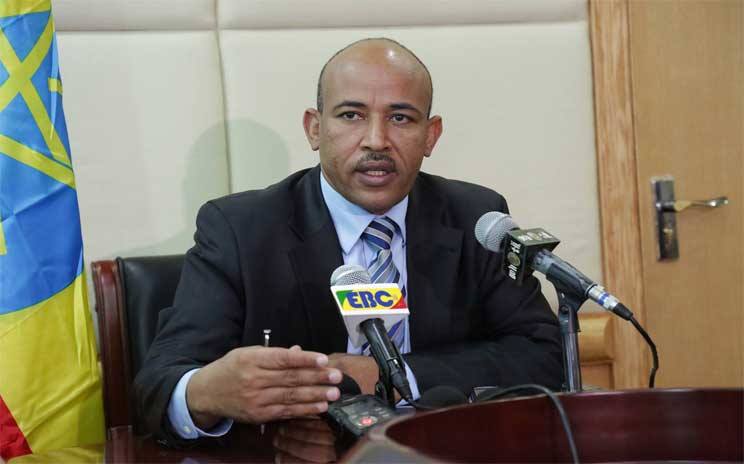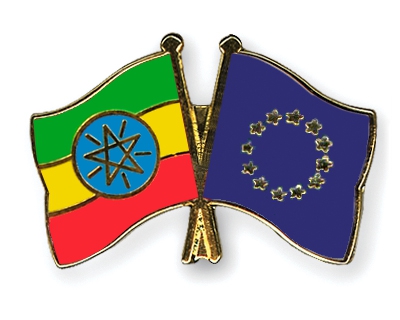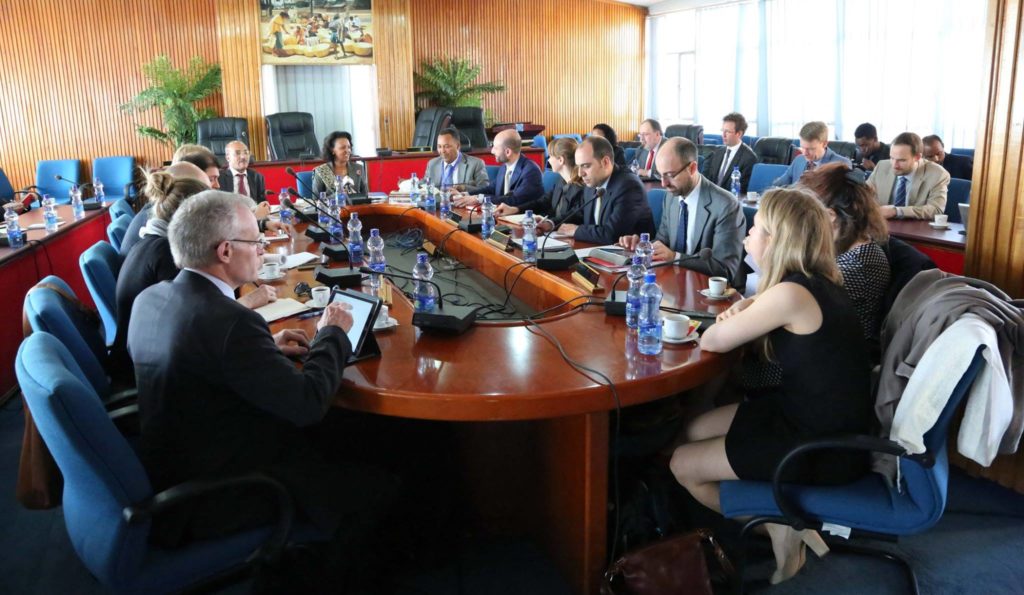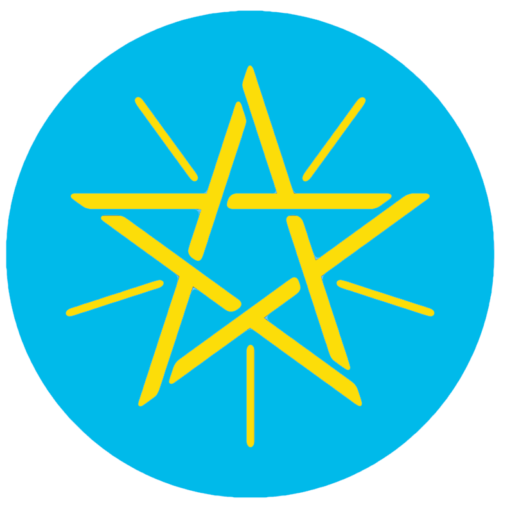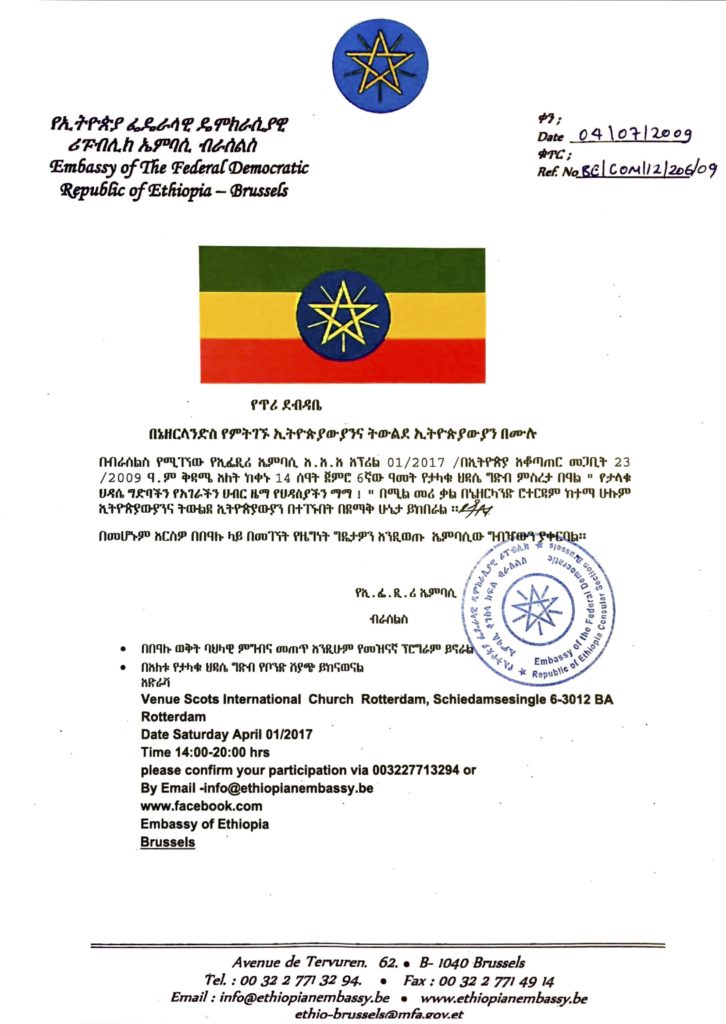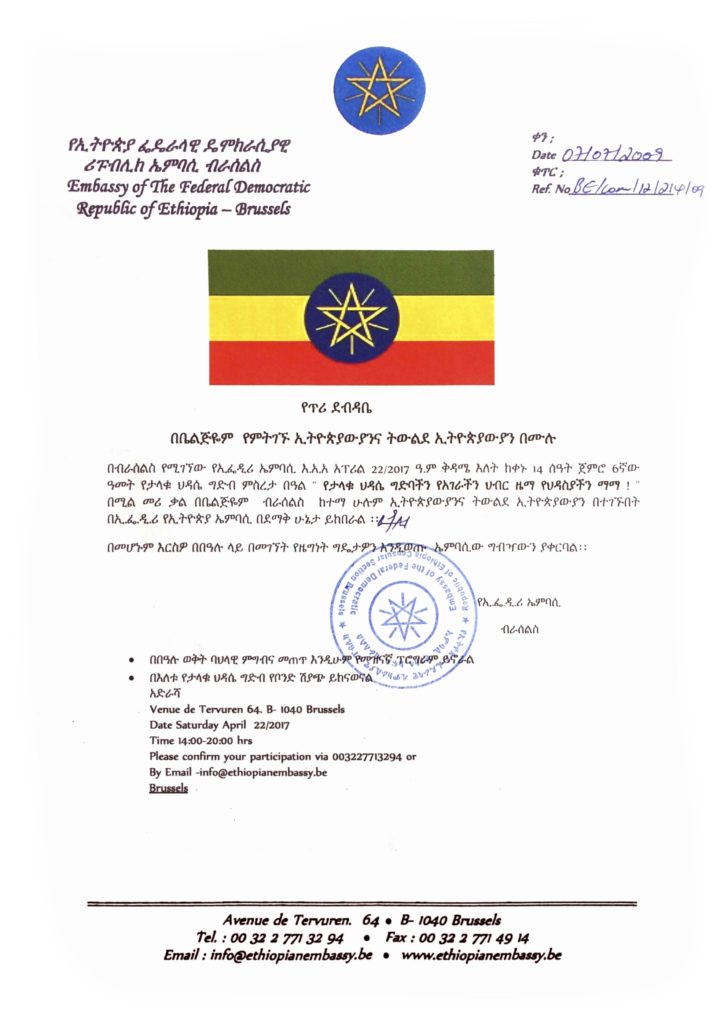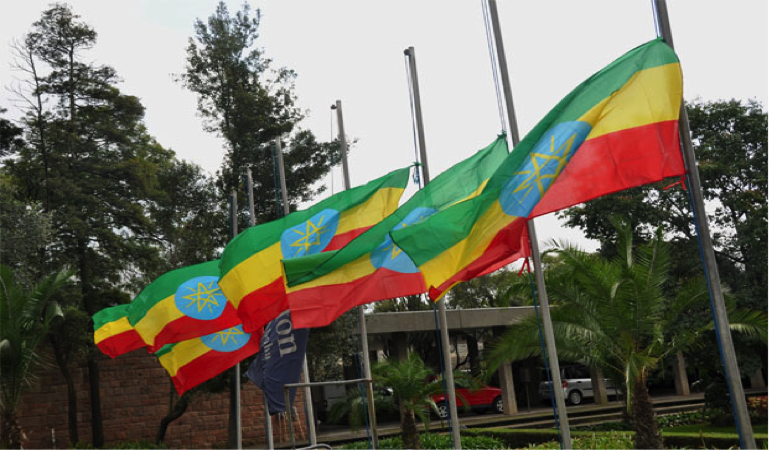Seminars in the Netherlands on Sustainable business in Ethiopia, with a focus on horticulture and Doing Business in Ethiopia
An Ethiopian High-Level delegation made a working visit to the Netherlands including two promotional seminars on sustainable business with a focus on horticulture and doing business in Ethiopia. The objectives of the visit and seminars were to inform to the Dutch public sector and private sector about the present situation, new vision and economic trends of the country and seek the support of the Dutch government to encourage the private sector in investing in Ethiopia. Another objective was to inform the Dutch private sector about the current business opportunities and invite to participate in the economic development of the country by way of investment, knowledge and technology transfer and benefits out of it.
Working visit and seminar on sustainable business in Ethiopia, with a focus on horticulture
From 18 March-21 March, 2017, with the support of the Dutch Government, A High- Level Ethiopian Delegation led by H.E. Dr. Arkebe Oqubay Metiku, Sr. Government Minister and Special Advisor to the Prime Minister made a working visit and seminar on promoting sustainable business in Ethiopia, with a focus on horticulture.
During the visit, the delegation made a field visit to Schiphol-Cargo, Royal VOPAK, and world’s leading independent tank storage company, exchange of information with Mr. Jeroen Verheul, Ambassador at large for Netherlands Foreign Trade and Development and discussion with development agents and knowledge institutions: EP-Nuffic, Solidaridad Europe and Landscape and Wageningen University Research Station. Flying Swans also gave presentation on the cool cargo chain followed by discussion.
The delegation also held talk with Mr. Kees van Baar, Human rights Ambassador of the Netherlands on human rights in business and investments and her Excellency Ploumen, Minister for Foreign Trade and Development Cooperation on bilateral economic cooperation, assistance with sustainable land management and initiatives and tangible long-term sustainability. In addition, the delegation had a guided tour at Royal Floraholand and at Aasmeer, the largest trading center for plants and flowers in the world and a field visit at Kuehne-nagel, one of the leading global providers of innovative and fully integrated supply chain solutions and Evofendex and Waterwatch Cooperative dealing with trade facilitation and information services with satellite technology for Agrifood accessible and affordable to all actors in the value chain respectively.
The incoming mission had also a seminar on business opportunities in horticulture: integrated development of horticulture site Hawassa in Ethiopia, at Robobank-Westland. The seminar was kicked off by Mr. Sjaak van de Tak, Mayar of Westland with more than 70 participants from the public and private sectors. Following this, Dr. Arkebe gave presentation on the new vision and economic trends of Ethiopia and Mr. Zelalem Meles, Ethiopian Diaspora investor in horticulture and Chairman of the Ethiopian Horticulture Association gave presentation on the performance and opportunities of the Ethiopian horticulture sector, the new horticulture hubs, incentives applicable to the hubs and his testimonials as an investor.
Mr. Peter Niekus gave presentation on how Rabobank supports Dutch business in Africa, Mr Jan-Erik Visscher, and Account Manager Ethiopia FloraHolland on perspectives in horticulture and two Dutch investors on horticulture in Ethiopia also gave their testimonials on the Ethiopian Horticulture industry. The seminar was rounded by question and answer session and business networking.
Seminar on Doing Business in Ethiopia
On 22 March 2017, a high-level seminar on ‘Doing Business in Ethiopia’ was jointly organized by the Embassy of Ethiopia in Brussels and the Netherlands-African Business Council (NABC) at the Common Fund for Commodities in Amsterdam.
The seminar was kicked off by the opening remark of the host, Mr. Alex Gruber, Chief Operations Officer at Common Fund for Commodities (CFC).
Mr. Tesfaye Tadesse, Minister Councellor at the Embassy of Ethiopia in Brussels, on behalf of Mr. Teshome Toga, Ethiopian Extraordinary and Plenipotentiary Ambassador to the Benelux, also made a welcoming remark and explained about the Ethio-Netherlands political and economic relations and the alignment of Ethiopian economic diplomacy anchored foreign and national security policy and strategy with the Dutch economic cooperation policy of trade, aid and investment. He also mentioned the pivotal role of the private sectors of the two sisterly countries for the enhancement of the relation and the policy measures taken by the two Governments and cited the Double Taxation Avoidance Treaties (DTs) and Bilateral Investment Guarantee Treaties (BITs) concluded between the two Governments. Furthermore, he indicated about 135 Dutch companies active in investment mostly in horticulture in the country and the incoming and outgoing trade missions concluded on our priority areas in the past years and the Ethio-Netherlands Business event held in Nov/2015 based on the business opportunity reports of the two sisterly countries. Both were concluded in collaboration with the Ethiopian Embassy in Brussels, the Dutch Embassy in Addis and NABC, with the full support of the governments of the two sisterly countries.
During the seminar Dr. Arkebe updated the participants about the current situation, the new vision and economic trends in Ethiopia. The Minister emphasized on the stability and economic growth of the country and mentioned about the commitment of the government in dedicating more than 60% of its annual budget to infrastructure, energy and education and the competitive advantage of the country to foreign direct investment. He also briefed to participants about the extensive developments of 10 world class eco-industrial parks in the country dedicated for specific sectors such as textile and apparel, leather and leather products, pharmaceuticals, agro-products etc, and aimed at commodities production along value chains. He also mentioned that the parks are surrounded by infrastructure such as airport, railway lines, dry airports, universities etc. and elaborated about the incentives given to manufacturers and developers. The Minister, as an example indicated the recently inaugurated Hawassa Industrial Park specialized in textile with I billion USD annual export revenue generating capacity employing 60,000 employees.
Dr. Belachew Mekuria, Deputy Commissioner of the Ethiopian Investment Commission on his part briefed the participants about the current investment climate, investment incentives and services provided by the Commission to investors. Ato Yakob Yala, Director of the Ethiopian Horticulture and Agriculture Authority also briefed about the responsibility of the organization he represents, the Ethiopian horticulture sector development and the new horticulture hubs at Hawassa, Alagae, Arbaminch and Bahir Dar and incentives applicable to the hubs. Question and answer sessions were also entertained following the presentations.
As representatives of the Dutch private sector in Ethiopia, Jeroen Beijers (General Manager Africa Bavaria), Willem van Noort (CEO Kagan Spices) and Andy Kers (General Manager Steder Logistics) gave presentations and testimonials to the audience about their activities and the business opportunities in Ethiopia.
Network meetings with the delegation members and one-to-one meetings with Dr. Arkebe, Dr Belachew and Mr. Yacob Yala were also organized during the event.
In a nut shell, the working visit and the promotional seminars were successful for the objectives they were planned for.
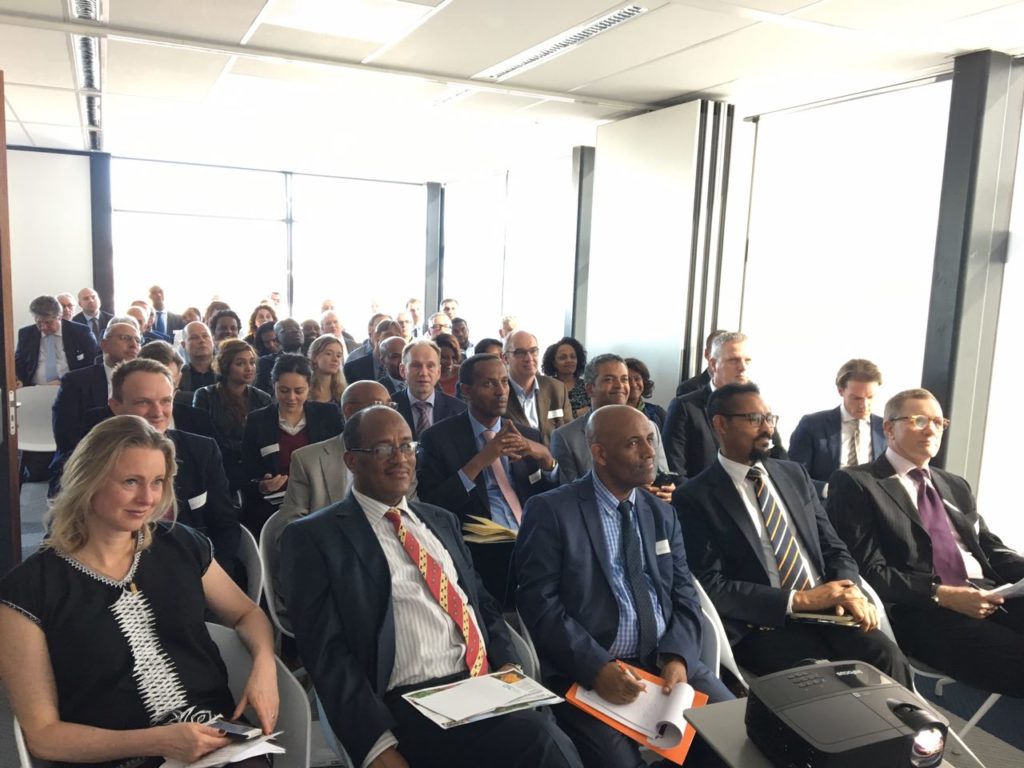
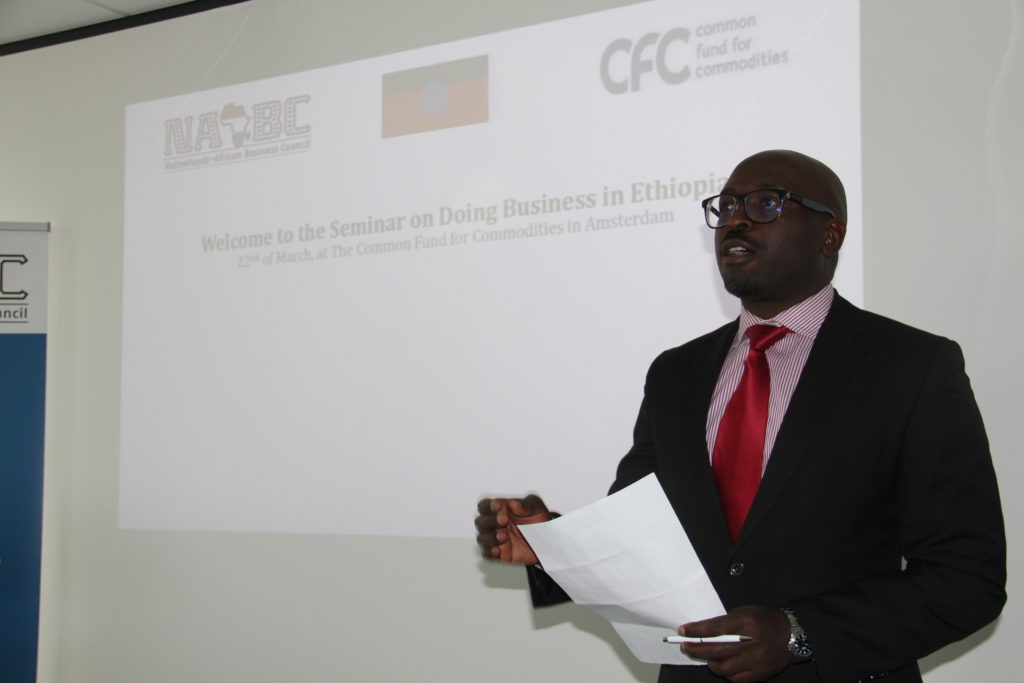
Picture: Arne Doornebal/NABC
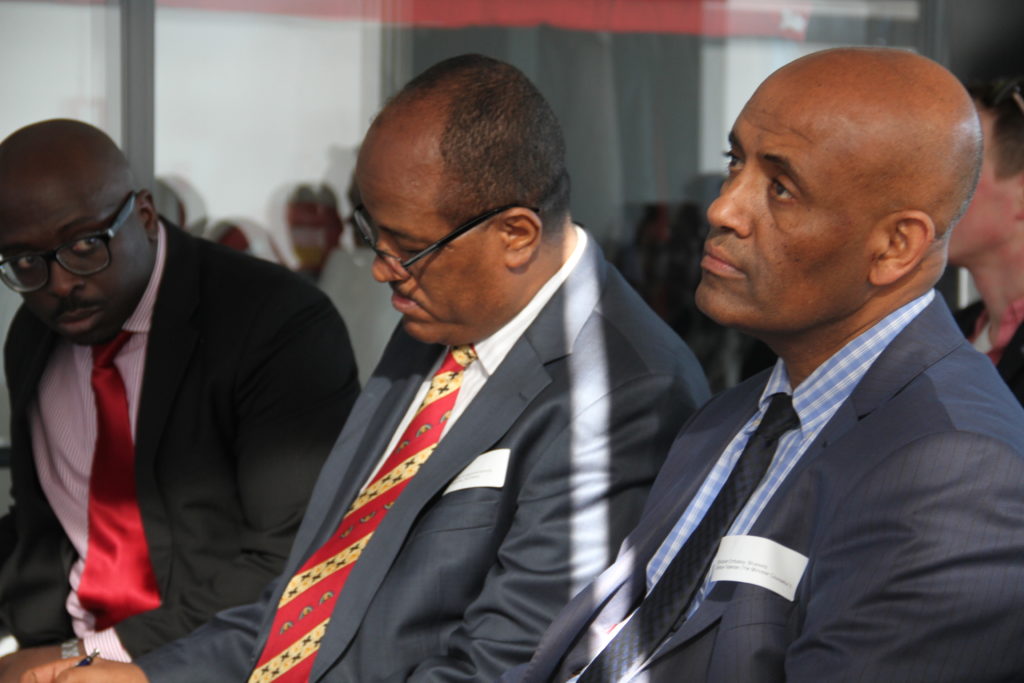
Picture: Arne Doornebal/NABC
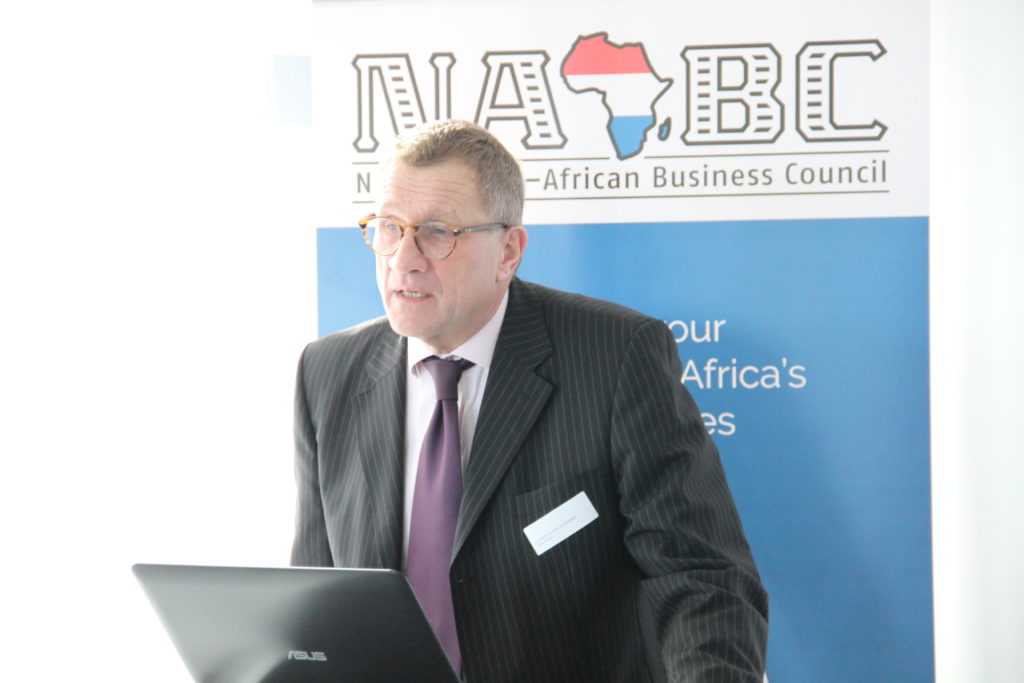
Picture: Arne Doornebal/NABC 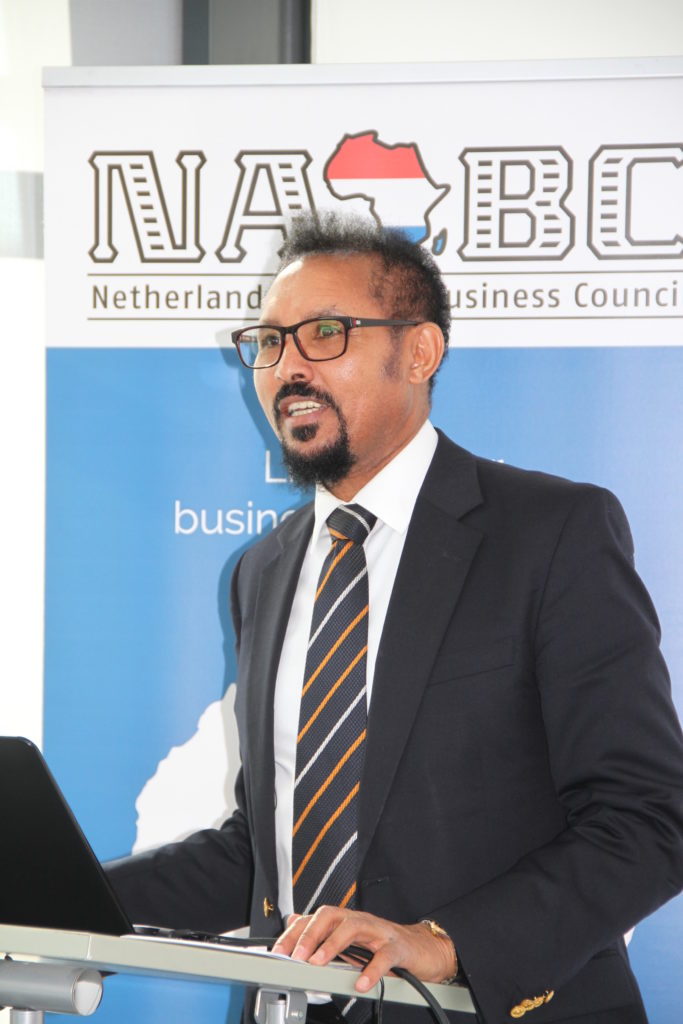
Picture: Arne Doornebal/NABC 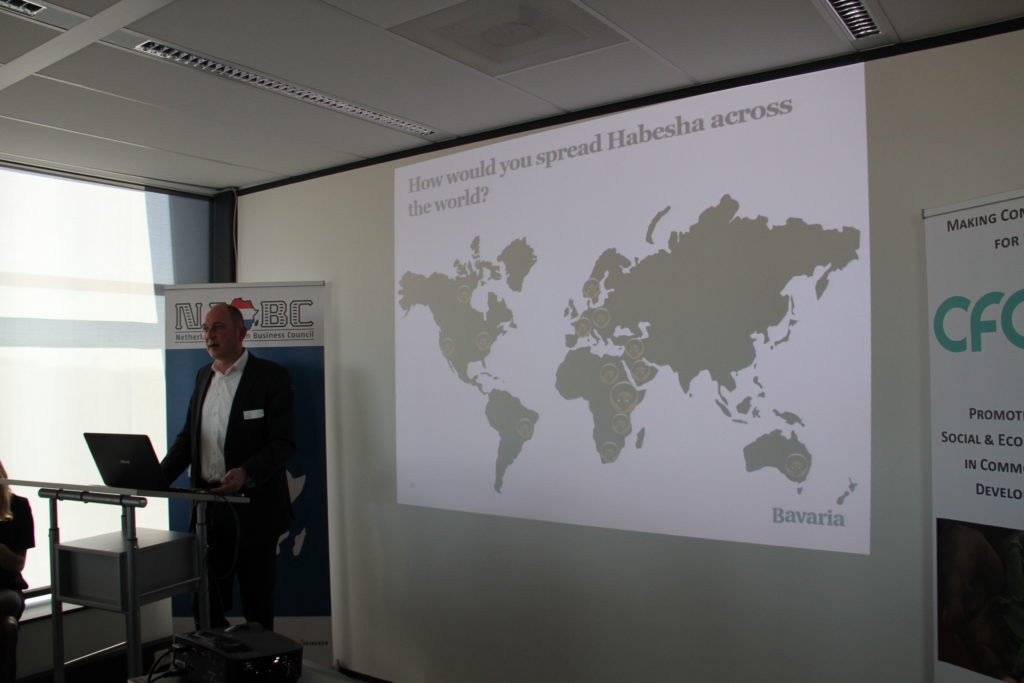
Picture: Arne Doornebal/NABC 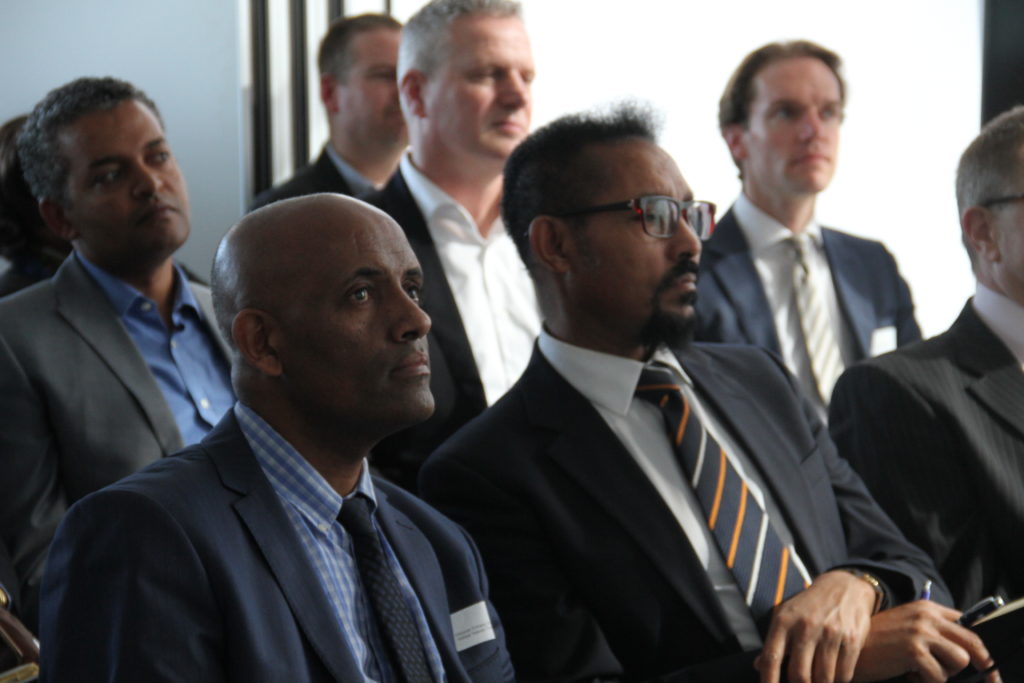
Picture: Arne Doornebal/NABC 
Picture: Arne Doornebal/NABC
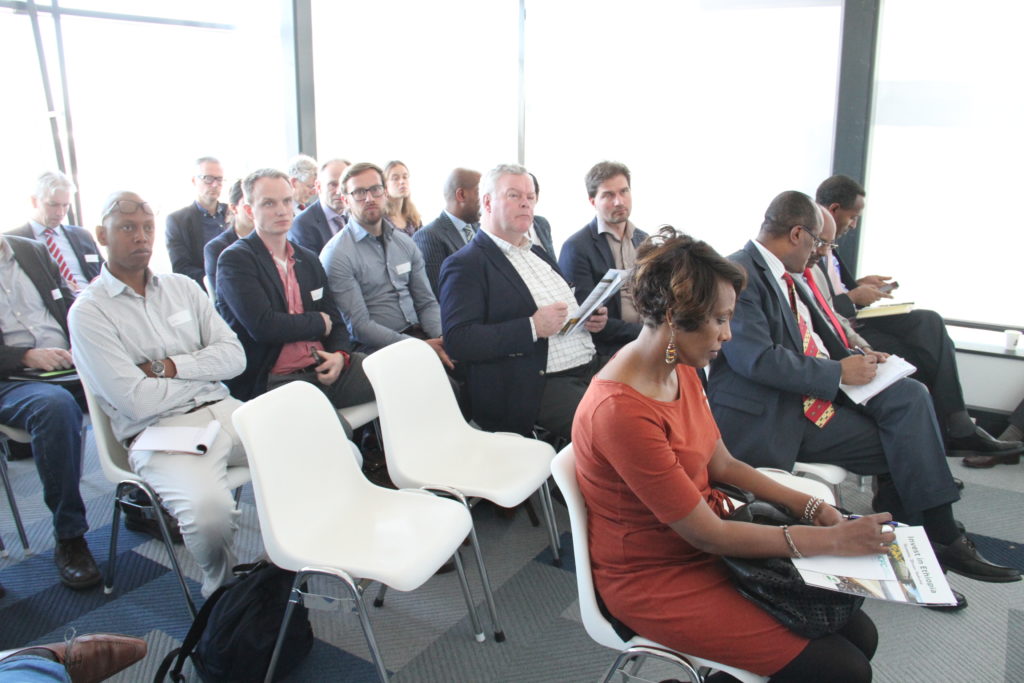
Picture: Arne Doornebal/NABC
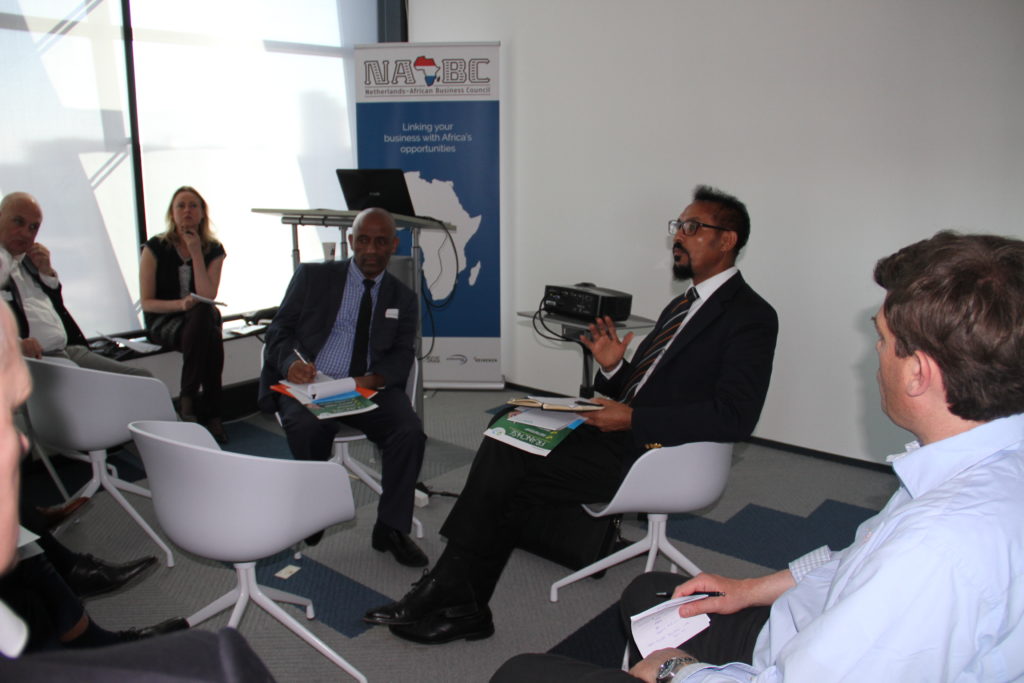 Picture: Arne Doornebal/NABC
Picture: Arne Doornebal/NABC
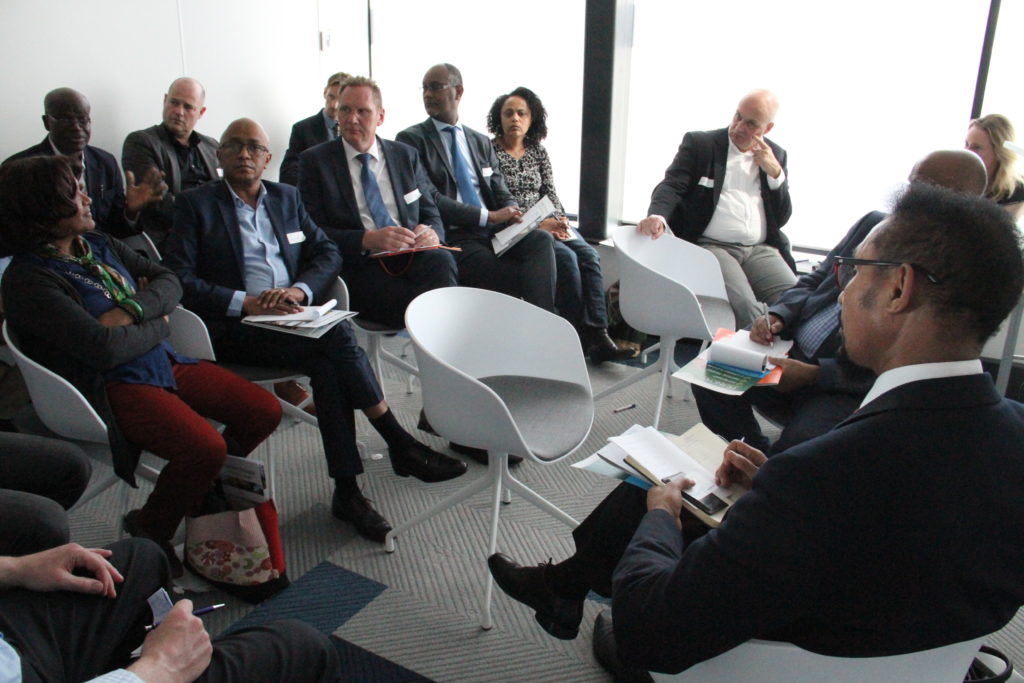 Picture: Arne Doornebal/NABC
Picture: Arne Doornebal/NABC
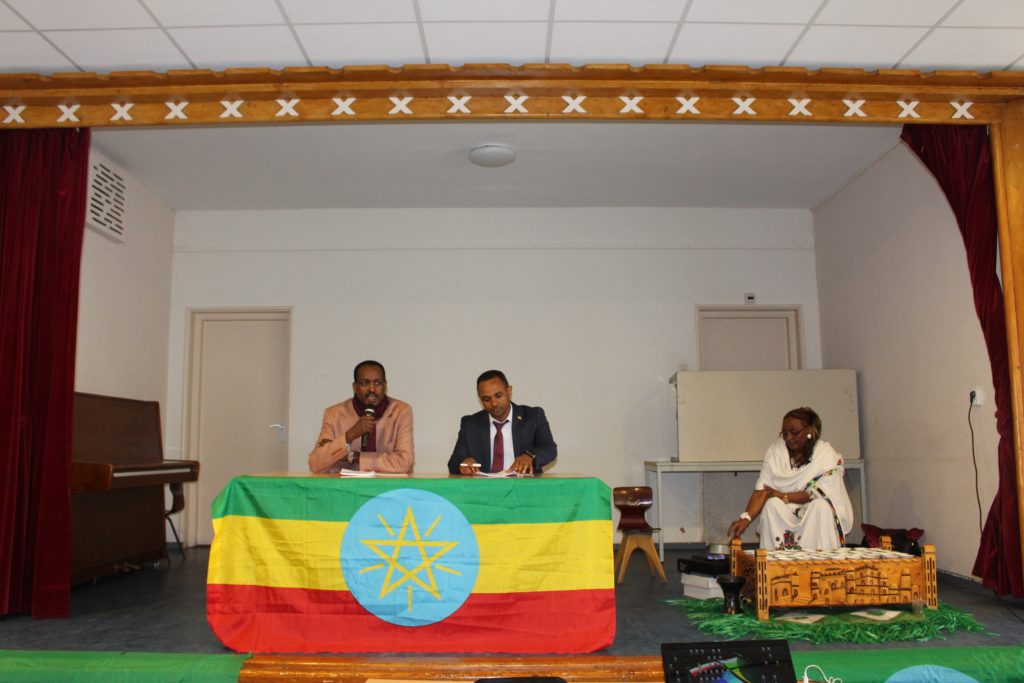


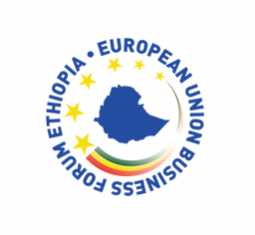

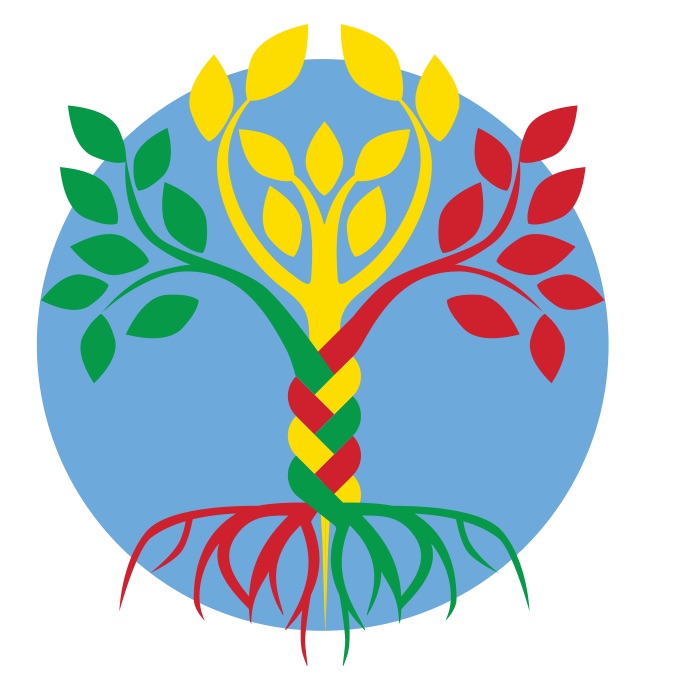
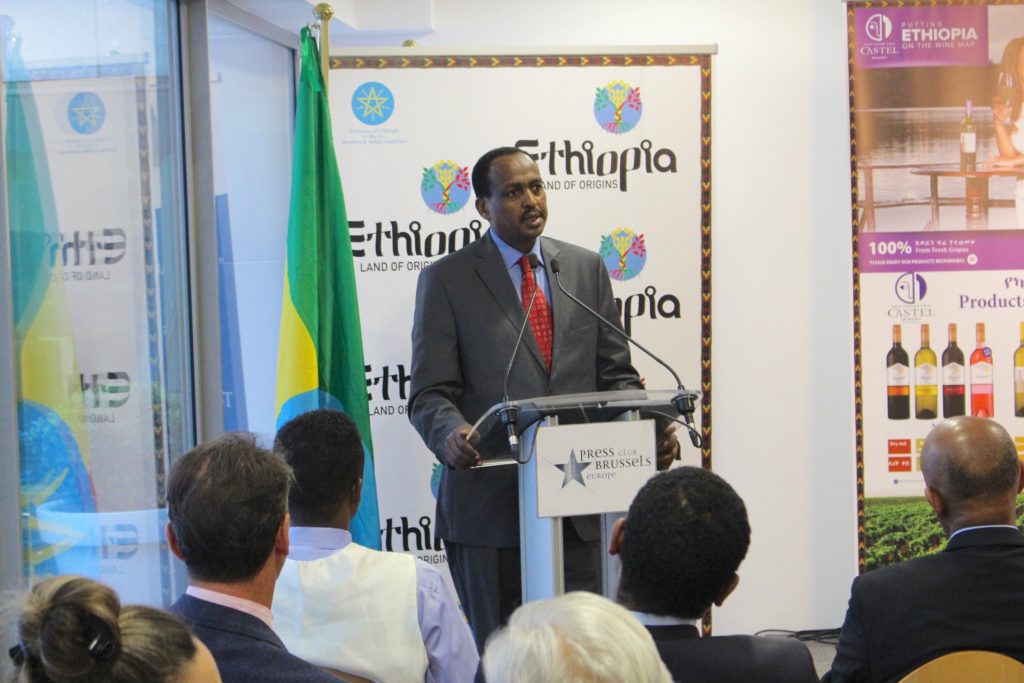
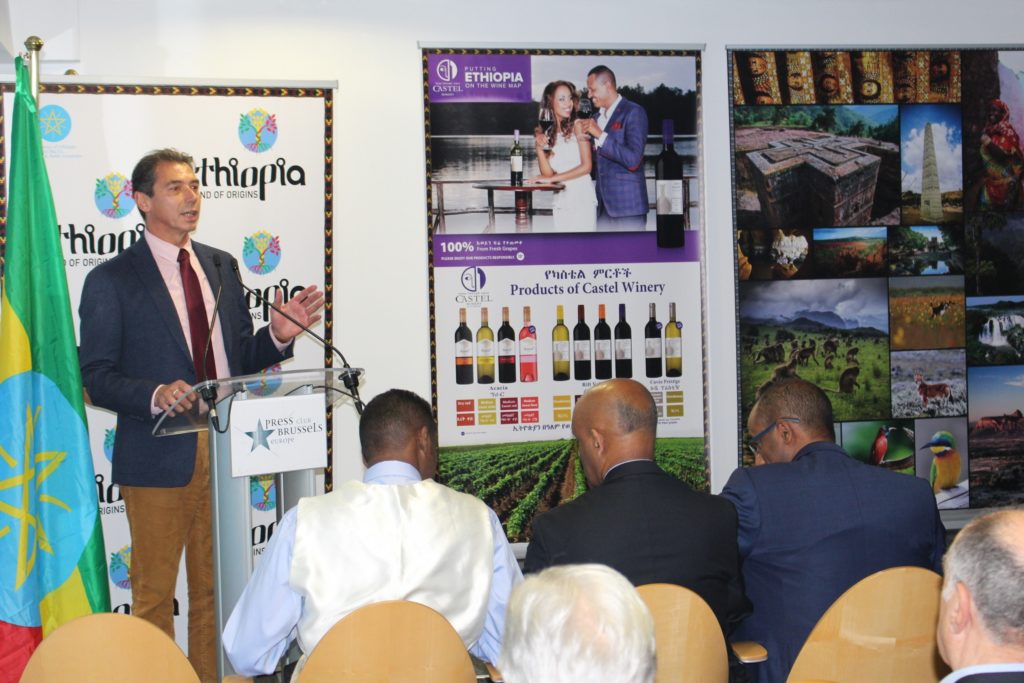
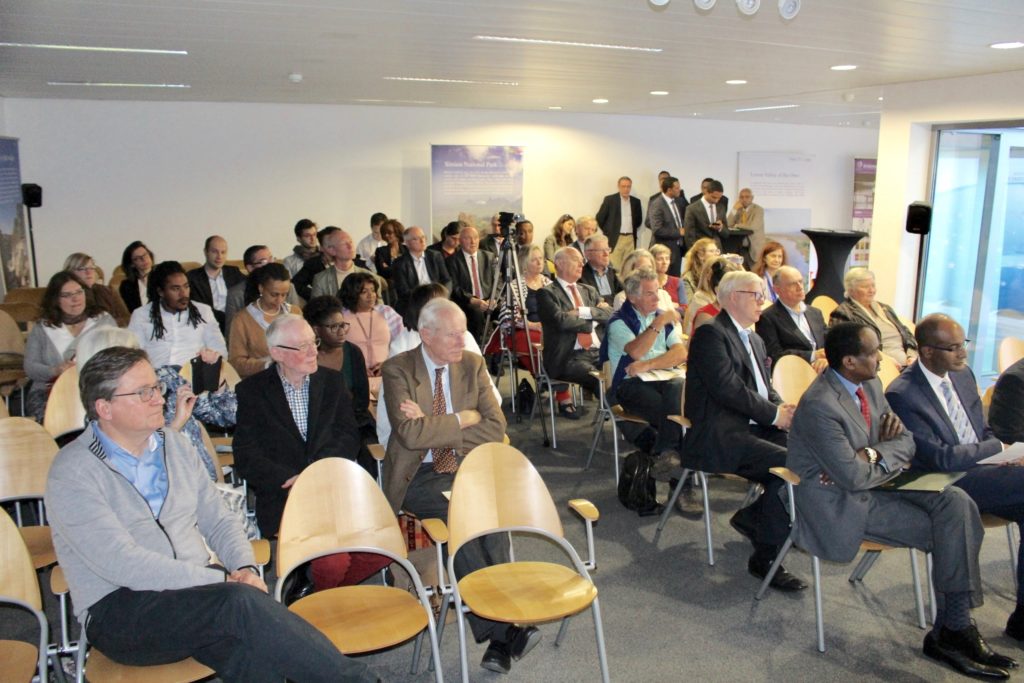
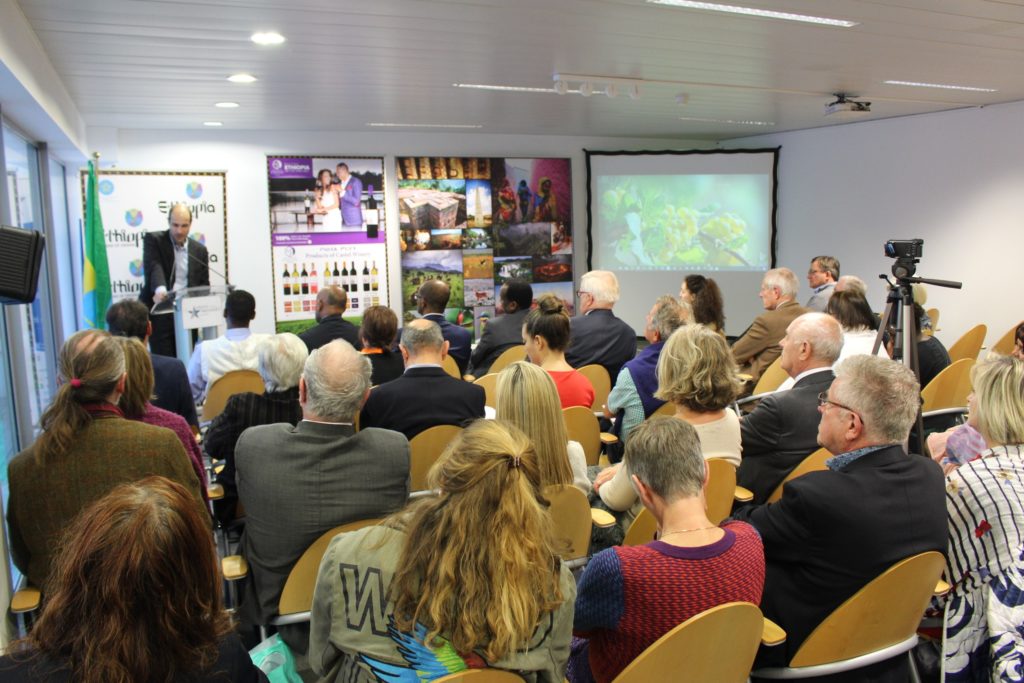
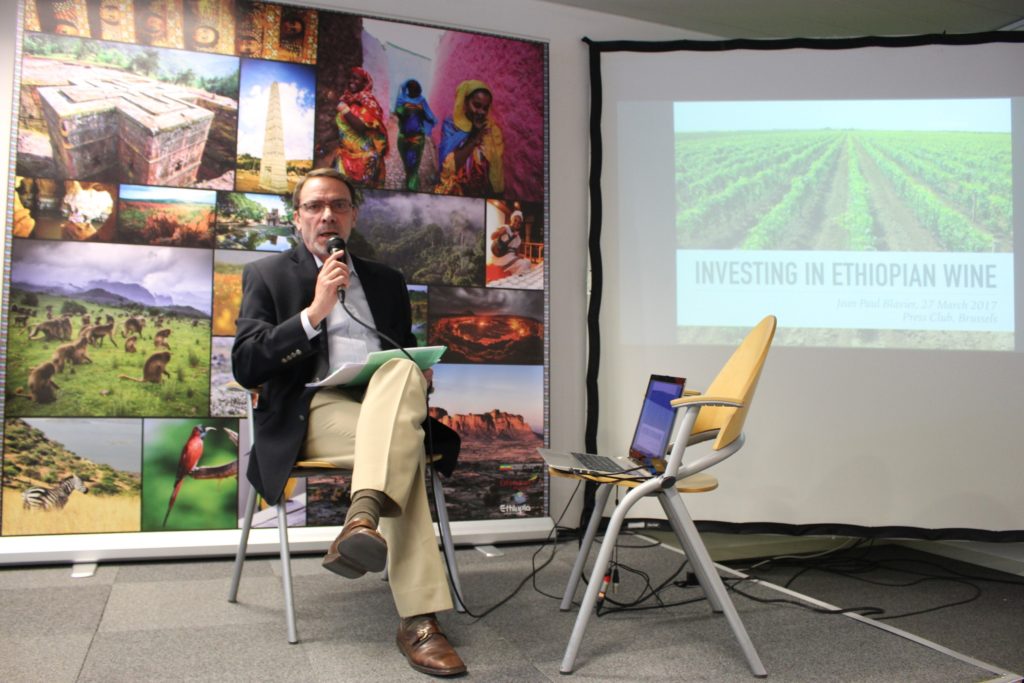
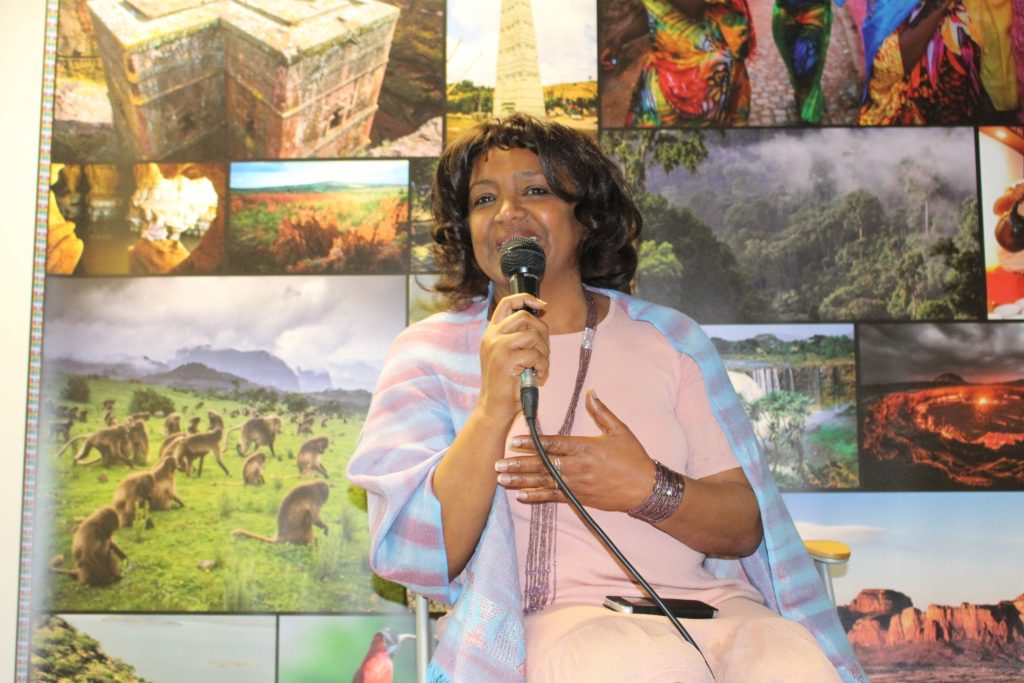
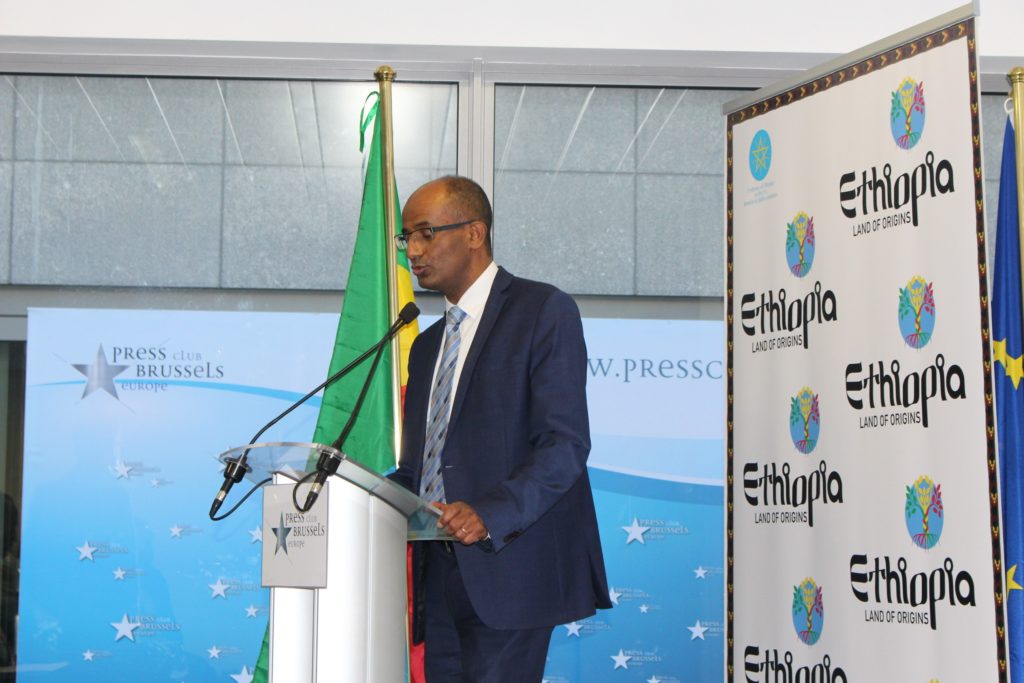
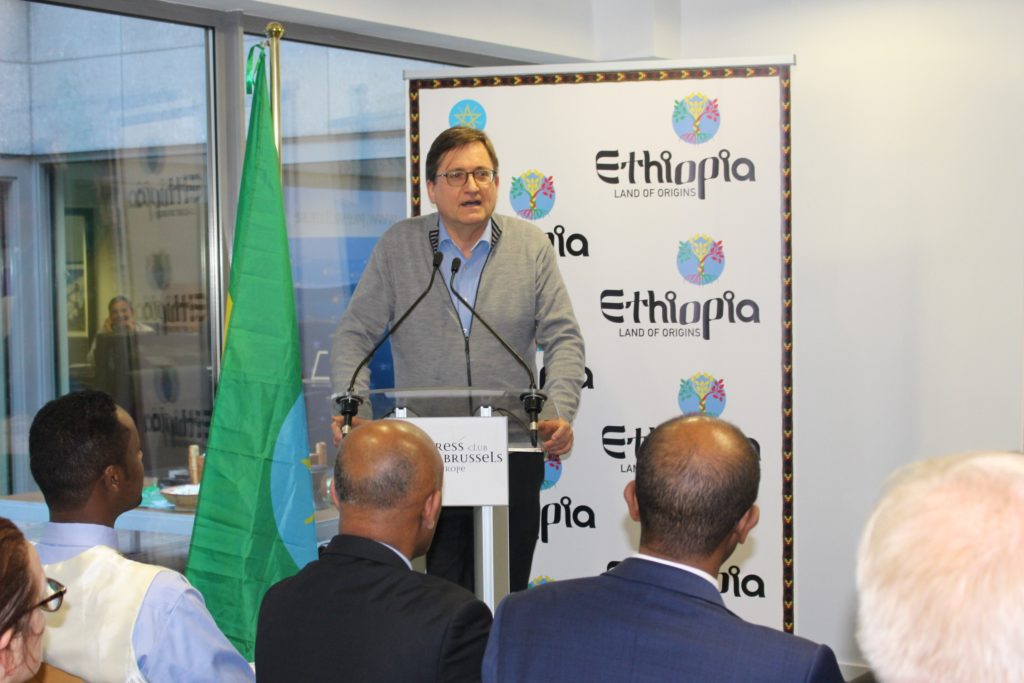
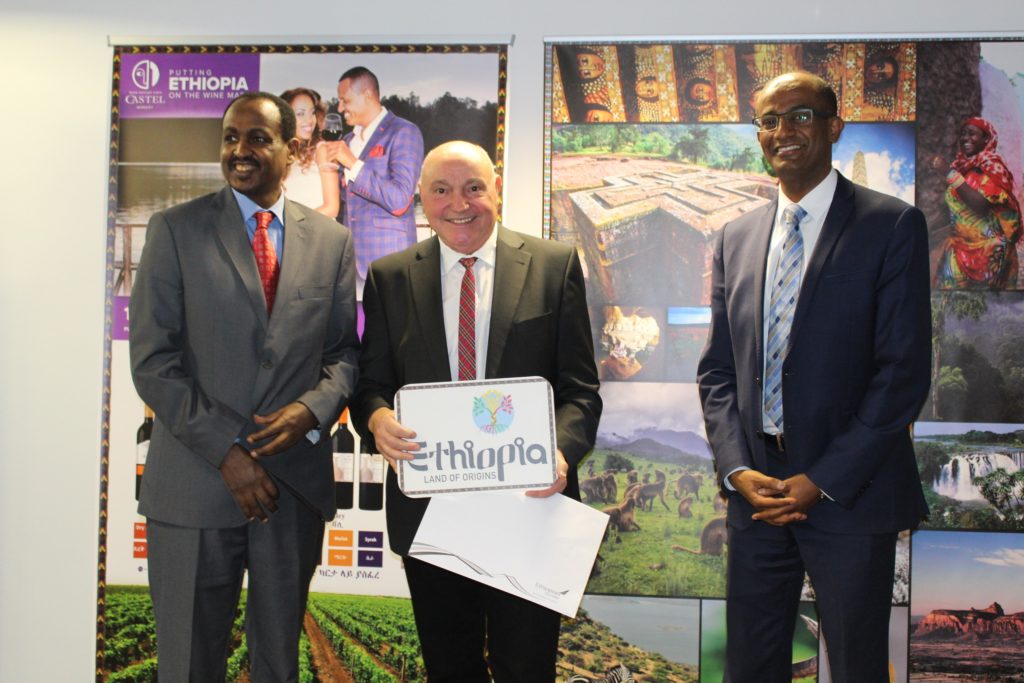
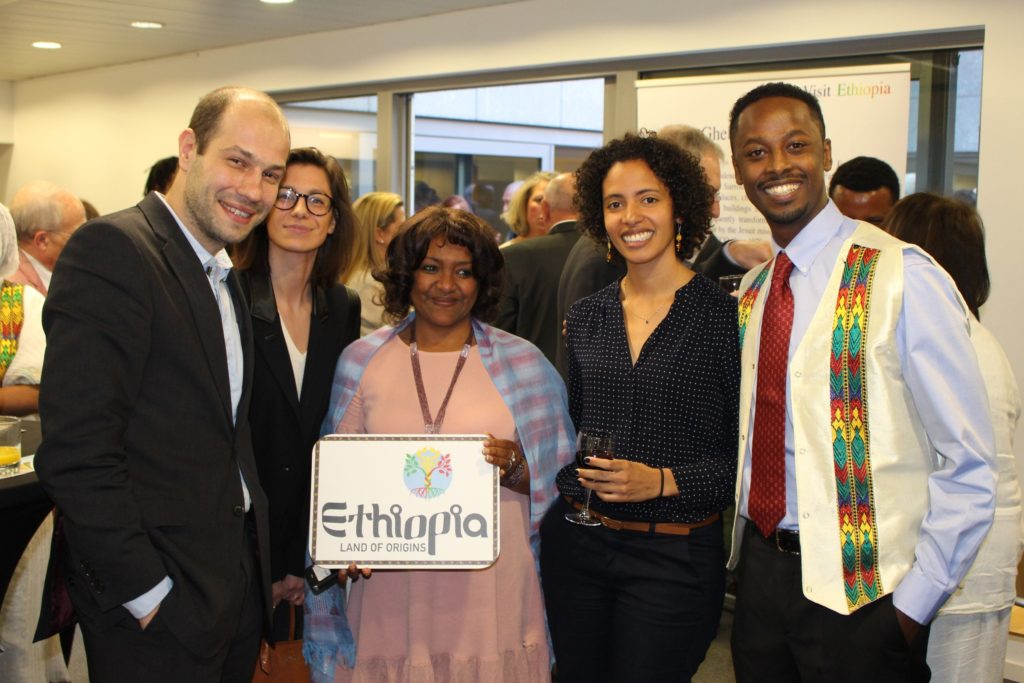
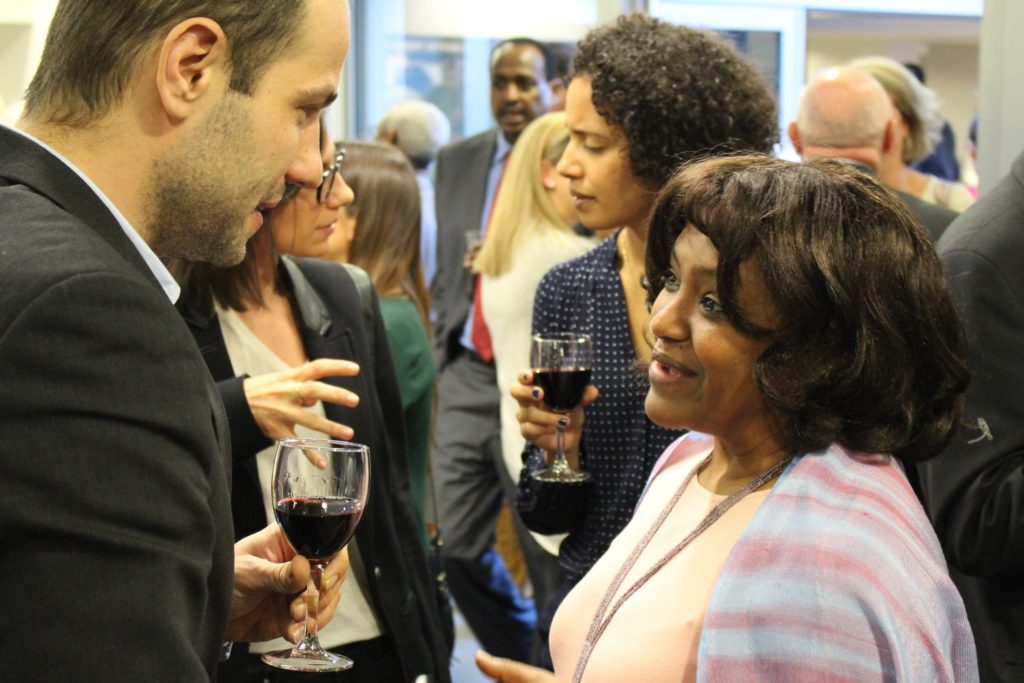
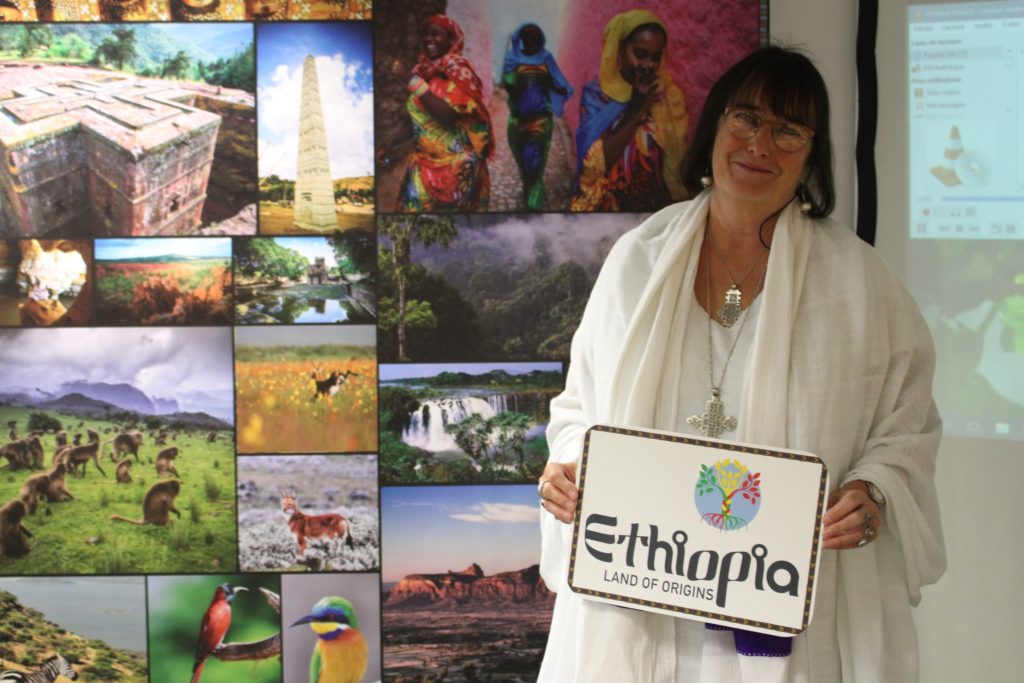
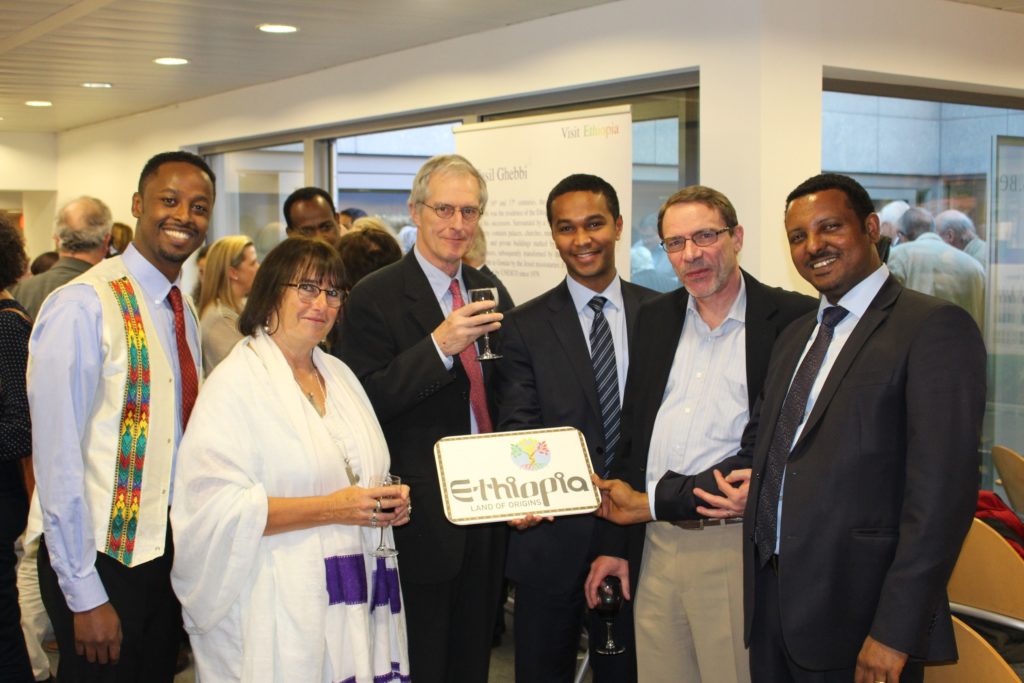
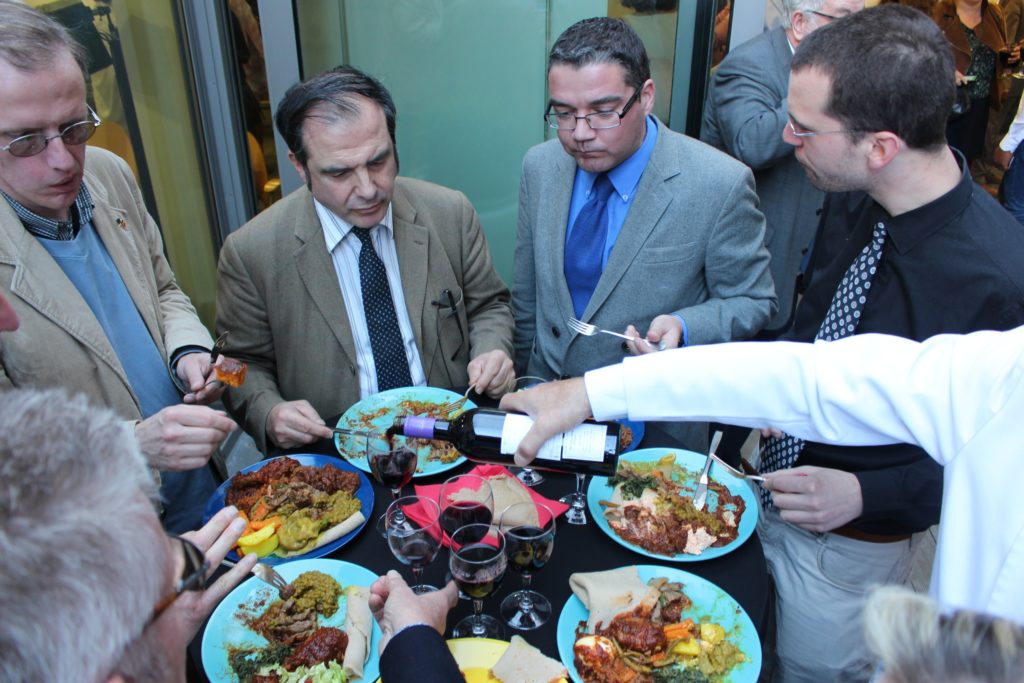
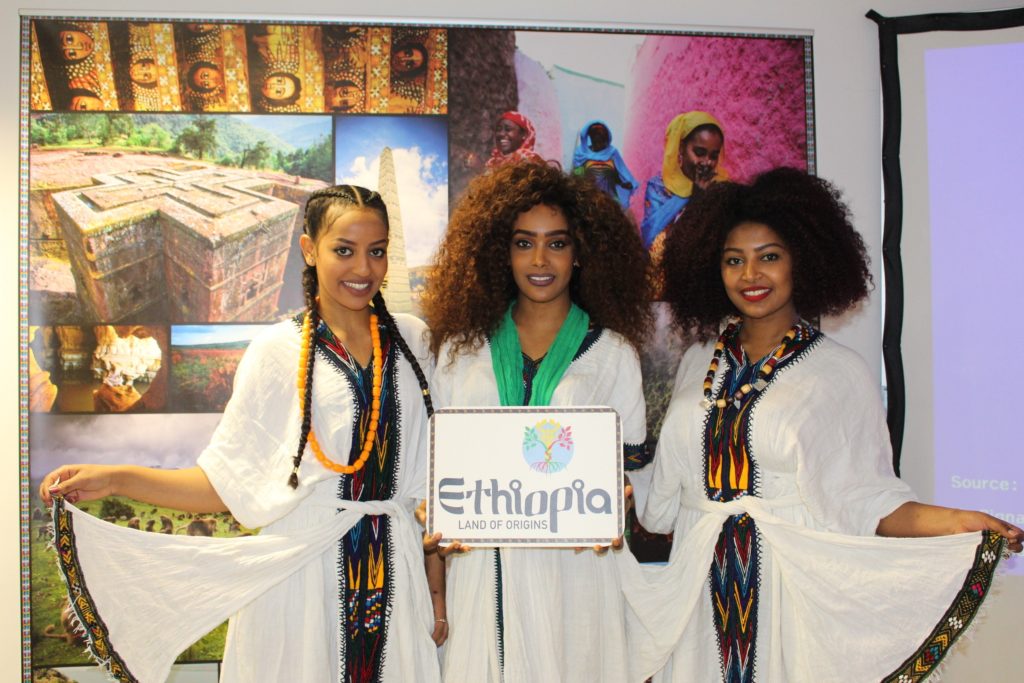
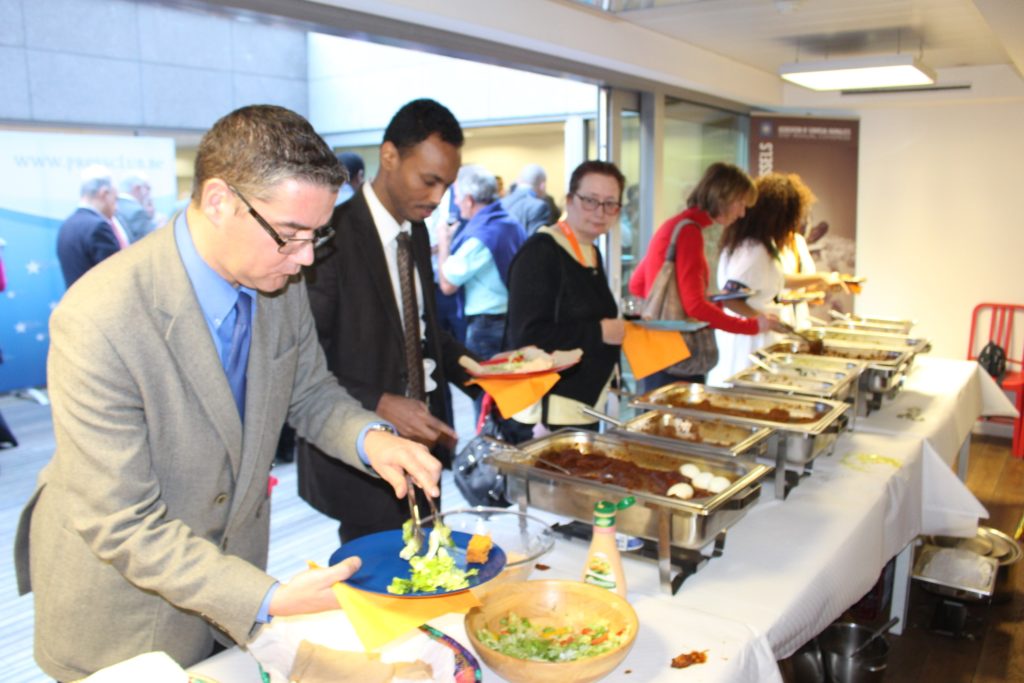









 Picture: Arne Doornebal/NABC
Picture: Arne Doornebal/NABC Picture: Arne Doornebal/NABC
Picture: Arne Doornebal/NABC